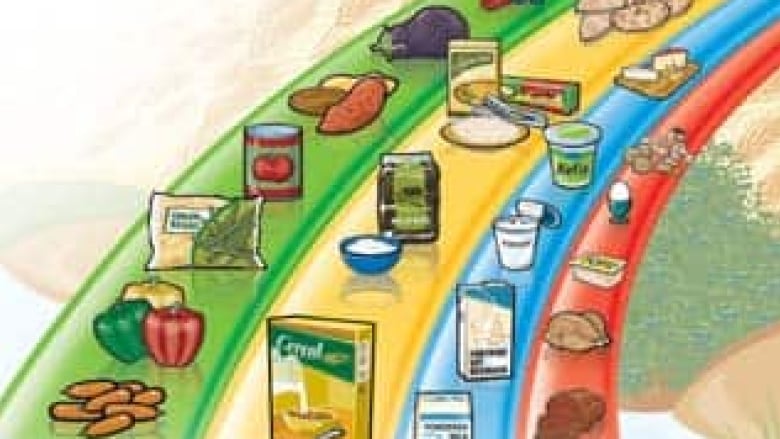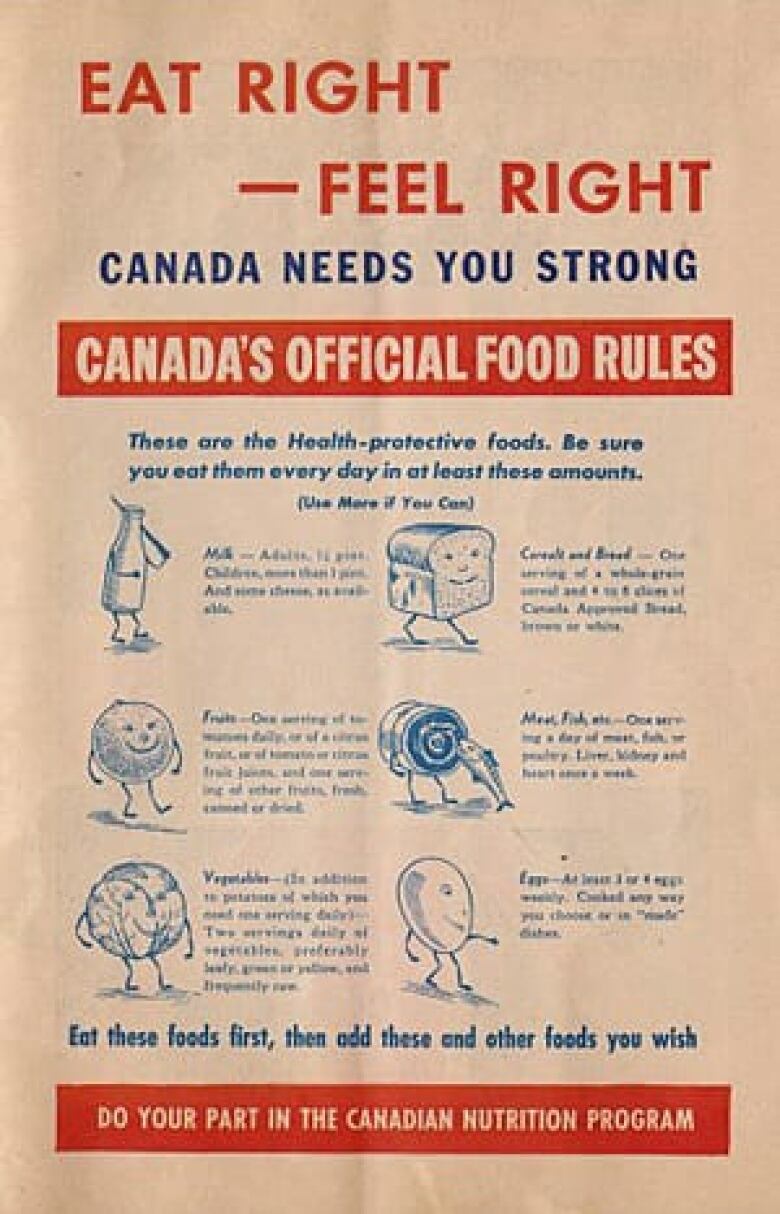With new Canada Food Guide due soon, debate over 'healthy eating' continues
Some countries adopt food guides that simply state: 'Eat unprocessed foods' and 'Learn to cook'

Low carb. High protein. Low calorie. No gluten. Ketogenic.
It's not hard to find conflicting information about what constitutes a healthy diet. For some including public institutions such as schools there's one ultimate resource: Canada's Food Guide.
For the first time in 11 years, Health Canada is gearing up to release a revamped food guide, even as debate continues beyond the pages of diet and wellness websites about the best foods to promote optimal health.
Some Alberta-based doctors are leading a critique of what they say is a "vilifying" approach by Health Canada to foods with high saturated fat content, such as red meat and full-fat milk.
"We're trying to influence Health Canada ... to say, 'Don't label saturated fats (as bad) and force us to eat more unprocessed food,' " Dr. Blair O'Neill, a professor of medicine and preventative cardiologist at the University of Alberta, said on CBC's Edmonton AM this week.

O'Neill is a member of the Canadian Clinicians for Therapeutic Nutrition. The organization argues that previous food guidelines emphasized low-fat, high-carbohydrate diets, which can be associated with current rising rates of obesity.
"Advising people away from nutritious whole foods like full fat cheese, meat and nuts may lead Canadians to choose refined, processed foods reformulated to avoid 'front of package' labels," the organization said in a recent release.
At the same time that the food guide is being revamped, Health Canada also wants to change food labelling regulations, to make front-of-package labelsmandatory for foods that contain a lot of sugars, sodium, and saturated fat.
Let's get the message out to eat whole foods, eat real foods, avoid processed foods.- Dr. Blair O'Neill, U of A
The department insists current research supports restricting saturated fat and sodium as part of a healthy diet.
"Our (research) has pointed out that it's not about total fat ... it's really about the replacement of saturated fat with unsaturated fat," Hasan Hutchinson, Health Canada's director general for the office of nutrition policy and promotion, said on Edmonton AM this week.
"There is strong convincing evidence that one should be reducing saturated fats and replacing it with unsaturated fats, not with sugars or other simple carbohydrates."
Hutchinson said Health Canada relies on large-scale, systematic review of research to support its findings
The revamped food guide will include animal-based foods, such as fish, eggs, poultry, lean red meat, lower fat milk and kefir, he said.
But the clinicians for therapeutic nutrition group said some of Health Canada's earlier technical reports relied on data that was several years old, and said there is insufficient evidence to determine that foods with saturated fat areinherently unhealthy.

New rules for new food guides
But what if Canada's Food Guide steered away from serving sizes and traditional food groups entirely?
In Brazil, the national food guide includes principles such as:
- Make natural or minimally processed foods the basis of your diet
- Avoid consumption of ultra-processed foods
- Eat regularly and carefully, in appropriate environments and, whenever possible, in company
- Develop, exercise, and share cooking skills
It's an approach that Berchuk advocates, and she noted that Health Canada appears inclined to include some of that philosophy in its new food guidelines.
But she worries that may create confusion. Will someone shun a piece of steak because of its saturated fat? Will the person reach for sugar-laden breakfast cereal instead, because it has whole grains? Berchuk argues that's not the healthiest choice.
"We're worried this message about fat, that people will be avoiding meats and full fat dairy."
Different disagreements on the food guide
The first phase of the new food guide is slated to be released later this year, with a dietary guidance policy report for doctors and policy makers. In 2019, Health Canada plans to release a more general report for all Canadians.
Industry groups such as the Dairy Farmers of Canada and food manufacturers have criticized the proposed updates, and predicted they will cost the food industry billions of dollars.
Health Canada said it invited industry and the public to comment on its work, with thousands of people providing feedback online or at meetings.












_(720p).jpg)


 OFFICIAL HD MUSIC VIDEO.jpg)
.jpg)



























































































